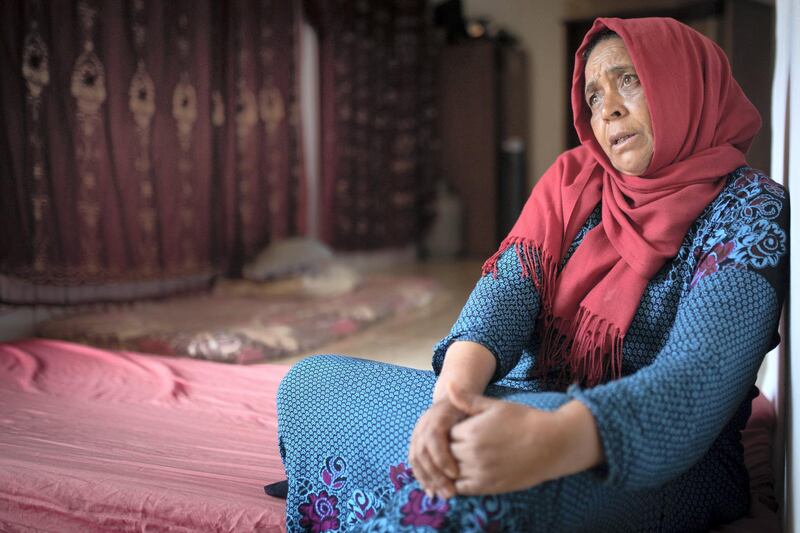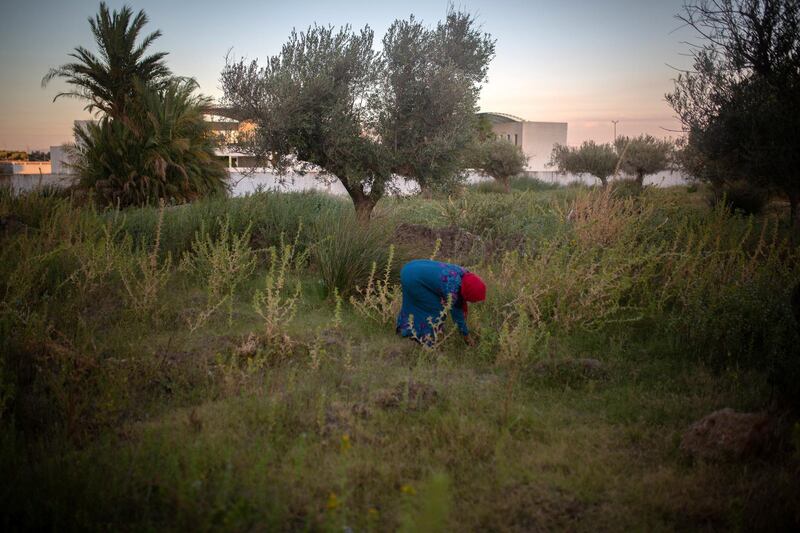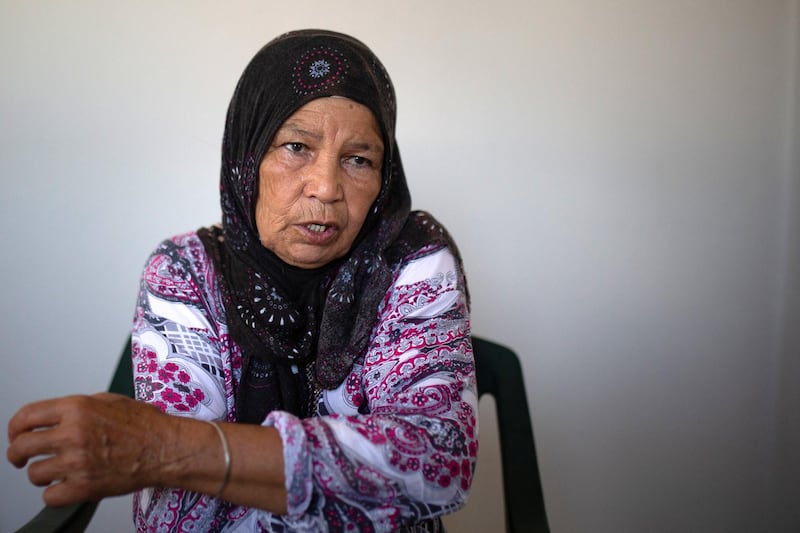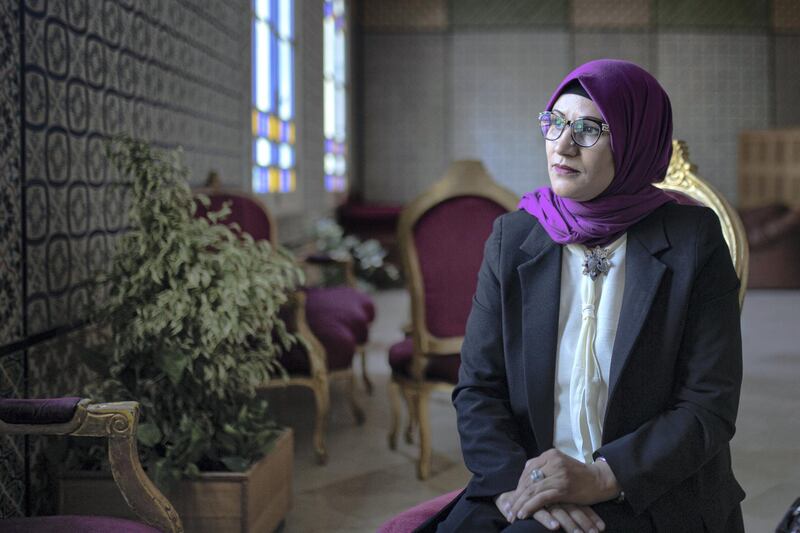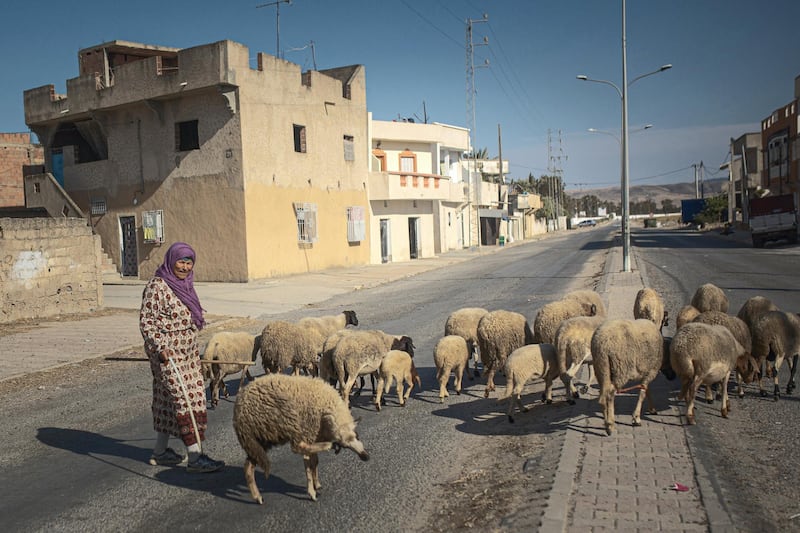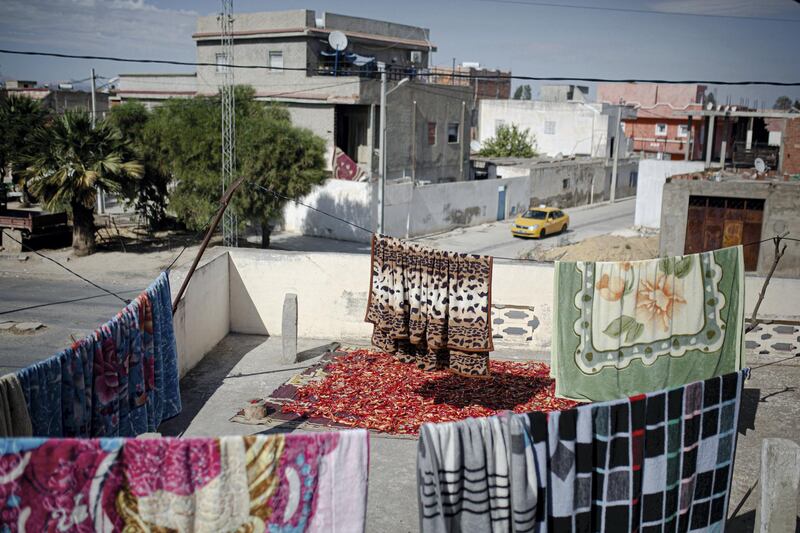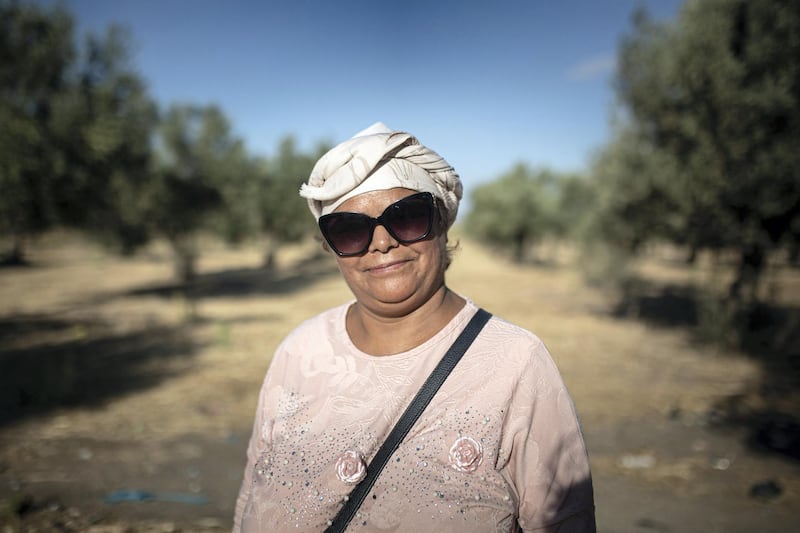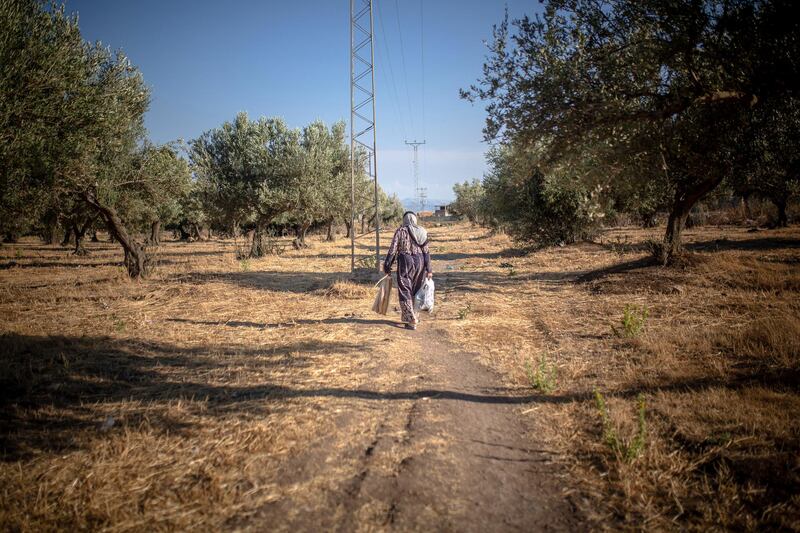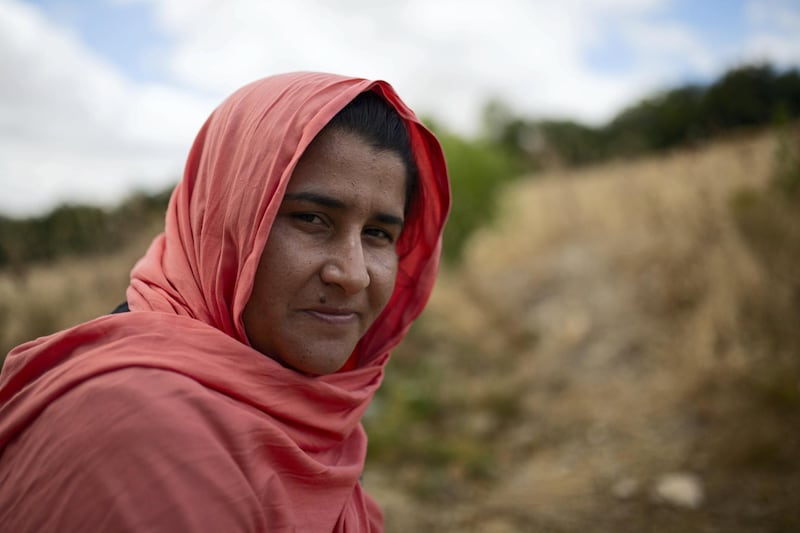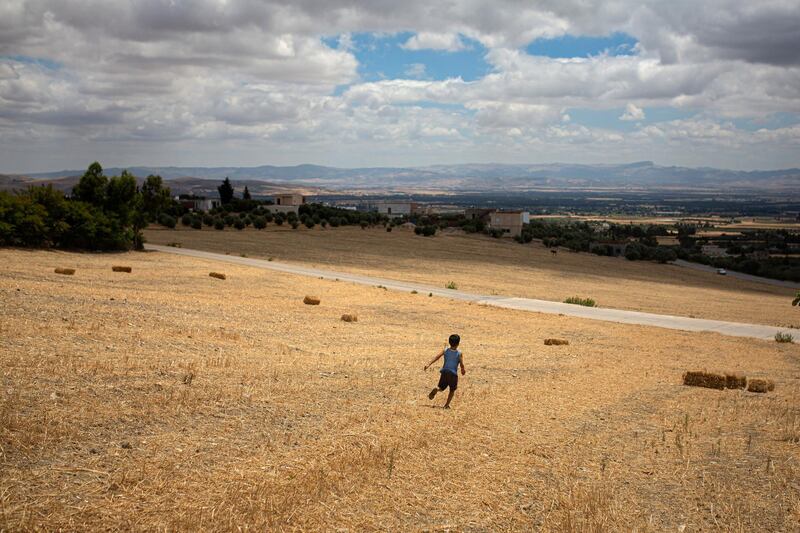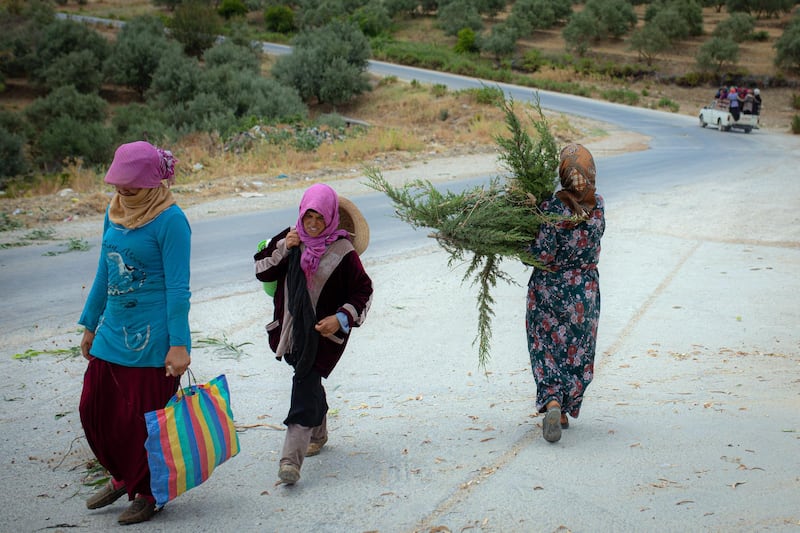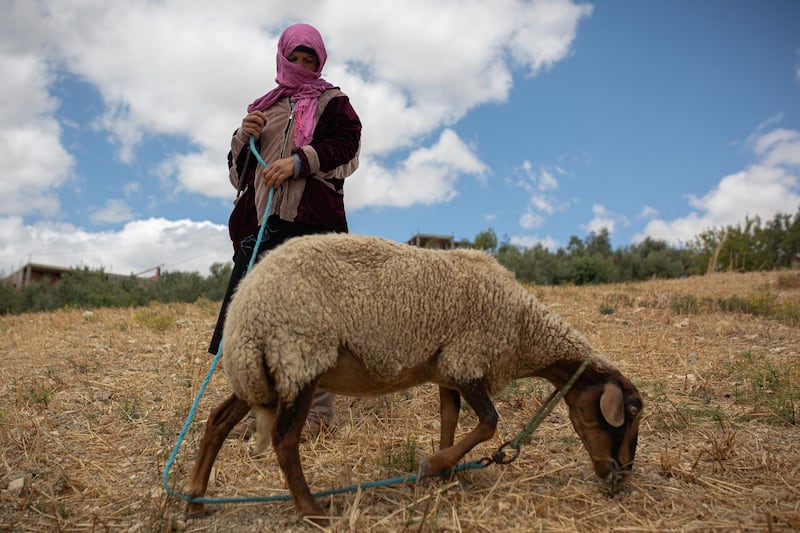A pickup truck rumbles uphill on the main road through the village of Balta Bou Aouane, which spreads over a green valley in the mountains of Jendouba province in north-west Tunisia. A dozen women stand packed together in the back, with cloth wrapped around their faces.
Stopping in the middle of the road at noon, the women get off and stride through the surrounding fields towards concrete-block homes.
The women are agricultural day workers, hired in Jendouba's villages to harvest tomatoes, potatoes and olives. They labour from 4am for as little as 10 dinars (Dh13) per day. They all live hand-to-mouth and many are illiterate, made to drop out of school by parents who spend what little money they have to educate their sons.
On August 13, Tunisia's President, Kais Saied, visited El Mouraidia, only a few kilometres from Balta Bou Aouane. There he met female agricultural workers and called for more consistent protection of women's rights.
The visit came on the occasion of Tunisia’s National Women's Day, which also marked the 64th anniversary of the introduction of the country’s personal status code.
The code is celebrated as a progressive milestone for women in the region. It outlawed polygamy and gave women equal rights on decisions of marriage, divorce and child custody.
Yet it also enshrined limits on daughters’ property inheritance rights and stipulated that sons inherit twice as much as daughters.
Tunisia: A champion of women's rights ... on paper
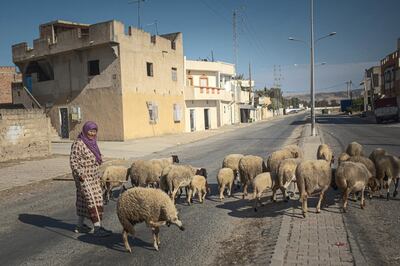
Despite images abroad of Tunisia as a champion of women's rights, especially since the Arab uprisings in 2011, the reality for women in rural regions can be brutal. They face physical and economic violence, illiteracy is high and they have been nearly completely absent from politics.
But increasingly, rural women are working to break out of poverty, fight oppression and make their voices heard in Tunisia's political sphere.
According to the Ministry of Agriculture, about 32 per cent of Tunisian women, 1.8 million, live in rural areas. Forty per cent of women in rural areas are illiterate and 60 per cent say they suffer from health problems, 93 per cent of which are work-related.
The state’s National Health Insurance Fund is mandated to cover all Tunisians. But only 10 per cent of rural women have access to free health care.
Salsabil Kouki, 33, was born in Balta Bou Aouane. But unlike other women in the village, she was able to pursue a university education because her family was more financially stable.
Today, she is the president of the local branch of the Association of Community Development and the Woman Citizen and is active with a host of other initiatives, such as the solidarity organisation Lam Echaml (Always Together) and an African Union children's rights programme.
As well as Tunisia's laws to protect women, the relatively expansive national education system means there are many women doing well in business and the government.
But this hides the reality that for Tunisians, geography can be a major determinant of life chances.
While many women on the coastal north can often receive a good education, jobs and health care, the rural interior lacks infrastructure and has a feeble education system. Poverty is high and it has created a vastly unequal society, effectively making rural women second-class citizens.
The struggle for change
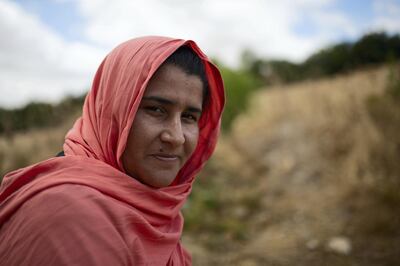
Sitting outside her home in Balta Bou Aouane, Ms Kouki spoke of the resistance she and women like her faced as they fought for greater recognition from local authorities.
“At municipal council meetings, we activists bring up issues with them like disabled women, divorced women and those who’ve never gone to school. They’re most vulnerable," she said. "But the municipality tells us, ‘I haven’t even put them in my budget for this year'. It’s like they don’t even think about us.”
After decades of severe neglect by the state, the mistrust among rural women here runs deep. "Last year, before the elections, I held political awareness-raising sessions for rural women," she said. "They want to vote. But the question I hear most is: 'what will these politicians bring me?'"
There have been improvements in Balta Bou Aouane, but these are basic and they have required such a struggle that Ms Kouki seems almost dispirited by the modest gains the female activists have achieved for their community.
"The road has been paved. The municipality has extended public water to us. But this was only after we held countless sit-ins and after we brought numerous complaints to the governor's office," she said.
Chadlia Ayari is another rural woman who has broken through heavy social conventions and fights for change.
She is a member of The Modern Woman and the Child of Tomorrow, an association that focuses on eliminating widespread domestic violence against rural women and their children in Jendouba, though the association partners with other women's organisations in provinces in the country.
Ms Ayari grew up in poverty in Jendouba and dropped out of primary school, which meant she struggled to read. Married in her early 20s, she moved to the neighbouring rural province of Siliana, where she lived with her husband in a village without water or electricity.
But she left her husband with her two children to escape his violence. Returning to Jendouba about 15 years ago, she became involved in the women's struggle. She began by improving her reading and speaking skills with the help of other women's organisations. She is now back with her husband, but only because "he's been taught to change and is no longer violent".
In 2019, Ms Ayari was a candidate in municipal elections in Jendouba and now runs initiatives to engage rural women in political participation and help them find work.
While she did not win the municipality seat, she gained local popularity as an activist.
"Education is essential," she said. "There are women in the mountains who can't read, like I couldn't. Their eyes are closed to all possibilities. And without education, they are totally dependent on their husbands. But we need to teach them so they can walk the path without their husbands."
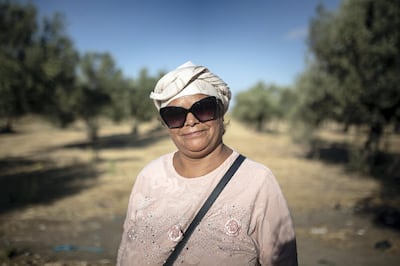
Dalanda Lakti, who founded The Modern Woman and the Child of Tomorrow in 2015, said the association was inspired by women discussing common problems in the hair salon where she worked.
Among the services it provides are medical caravans that bring women's specialists and paediatricians out to villages. They also advise women on their legal rights and run anti-domestic violence campaigns, as well as encouraging women to vote and run in local elections.
The association is also tackling the widespread problem of families in rural areas sending their daughters off to the richer coastal cities to work by providing alternatives closer to home.
"Fathers take their girls out of school and send them to live in houses in Tunis to work, where they're exposed to dangers like rape. So we offer these girls training in painting, pottery, silk weaving – crafts that they can sell," Ms Lakti said.
This also helps the women gain some level of financial independence, she said.
For Faouzia Abidi, president of a branch of the Association for the Rural Woman of Jendouba in the agricultural community of Fernana, there has been some improvement since organisations such as hers began their work.
"The rural woman in Jendouba today is not like she was in 2013 or 2014," she said. "Before, if any man told her to shut up, she'd be quiet. But we in the association go out to rural communities and speak to these women. And now they understand their rights and they're speaking out and debating. And it's having an effect: their husbands are asking us, 'What have you done to our women? They don't listen to us any more.'"
The rocky road from Tunis to the mountains
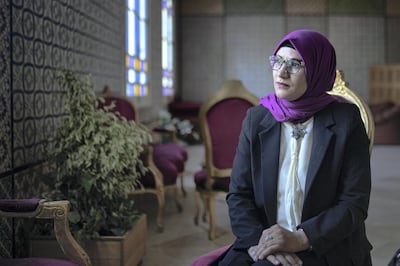
In the tiled halls of Tunisia's parliament hundreds of kilometres away in Tunis, Chedia Hafsouni, an MP from Jendouba, said that in government, rural women's rights were on the back burner.
"State interest in the issue of exploitation of rural women is only circumstantial," she said. "When some major road accident happens that kills women farm workers, the Ministry of Women's Affairs gets up in arms and says they'll give these women insurance, but the talk dies down and nothing happens."
While Ms Hafsouni has her own organisation serving rural Tunisian women and represents one of the country's most rural provinces, she is not confident that simply approving laws can profoundly improve the circumstances for rural women.
"It's all up to the ministries to implement. We the MPs are just legislators, but we can't put laws into action," she said, citing Law 58, which was lauded as a historic ruling in 2017 to protect women against domestic violence, but which is hardly enforced, if at all, in remote rural communities.
Jannet Kaddechi, president of the Voix d'Eve women's rights organisation in Tunisia's central province of Sidi Bouzid, where Tunisia's revolution first began in 2010, said the situation for rural women was in large part by design.
"Landowners and investors know that men won't accept the agricultural work conditions or pay imposed," she said. "And they know that if rural women were aware of their rights, or options for better work, they might leave. And these investors are indirectly very influential on politicians, which is why laws for women are not applied."
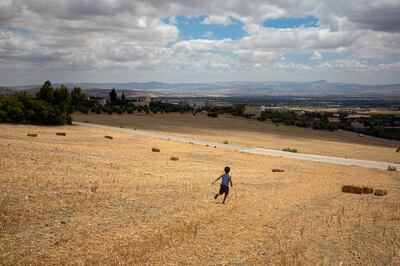
She said that a labour conditions inspector in Sidi Bouzid told her that his car broke down one year ago and the state, his employer, had so far refused to fix it. It made it impossible for him to visit village worksites and survey labour conditions of women working on farms.
But despite the forces stacked against them, Ms Kaddechi said that since the uprising, rural women were becoming ever more visible.
"We're seeing more rural women opening associations and training other women," she said. "In Sidi Bouzid there are protests and sit-ins demanding employment led by agricultural worker women. Local media contacts us to report on rural women. These women are becoming more confident with their role in public life."
